Sports
/ArcaMax
Best times for anglers
(Table for Feb. 22-March 8)
This table lists top fishing times and days for the coming weeks. For best results, begin fishing one hour before and continue one hour after the times given. Times apply to all time zones.
———
Sunday……............4:15 p.m................…………….....................................4:45 a.m.
...Read more
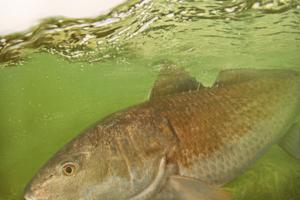
Birds-eye view of giant redfish school in South Carolina is eye-opener
HILTON HEAD, S.C. — On a late January evening, hundreds of redfish clustered into a sliver of shallow green water in tidal waters a stone’s throw from the bridge between Hilton Head Island and Bluffton, surrounded by a sea of pluff mud at low tide.
Redfish often school in tight quarters like this in winter months across the Lowcountry, ...Read more
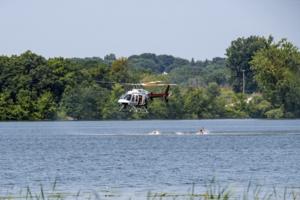
Hunter's night rescue illuminates a unique Minnesota emergency team
MINNEAPOLIS — A Minnesota hunter was lost Jan. 3 in the Mille Lacs County woods, and the odds of finding him on foot weren’t good.
The hunter was last heard from about 4:30 p.m. amid spotty cellphone reception and was last seen that morning, according to a sheriff’s department report.
Deputies attempted a brief search at 6 p.m. but were ...Read more
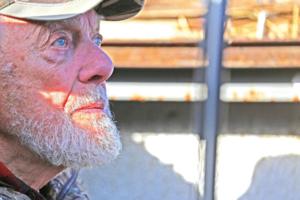
Dennis Anderson: How late Vikings coach Bud Grant helped Pheasants Forever take wing
MINNEAPOLIS — We were driving down the interstate late at night, Bud Grant and me, talking and watching for deer. I was behind the wheel, and the concern wasn’t that I would crash into a buck or doe. Instead, we were simply on the lookout for wildlife, a favorite pastime of Bud’s while traveling.
An hour or so earlier, we had left a ...Read more
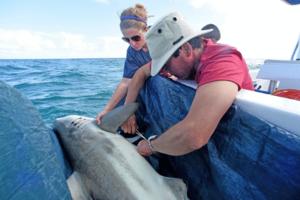
How to spook a shark: New tech keeps them away from fishing lines
FORT LAUDERDALE, Fla. — The delicious tuna and swordfish that ends up on plates across South Florida puts a dent in more than just your wallet — catching them puts a dent in global shark populations.
It’s common for sharks to get hooked on commercial tuna and swordfish longlines, which can stretch across vast areas of sea — 20 to 60 ...Read more
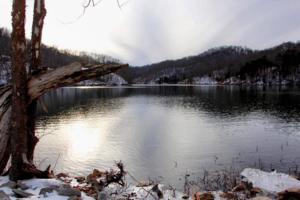
Anglers want larger bass in Kentucky waterways. State biologists are fighting it.
LEXINGTON, Ky. — Legislation awaiting a final vote in the Kentucky Senate would strip state game wardens of their ability to enforce most fishing laws on private land and settle a growing controversy between regulators and angler groups who want to stock non-native, hybrid bass.
Momentum for the bill, sponsored by Sen. Gary Boswell, R-...Read more
Best times for anglers
(Table for Feb. 15-March 1)
This table lists top fishing times and days for the coming weeks. For best results, begin fishing one hour before and continue one hour after the times given. Times apply to all time zones.
———
Sunday……….........10:40 a.m.....…………………..........................................11:05 p.m.
...Read more
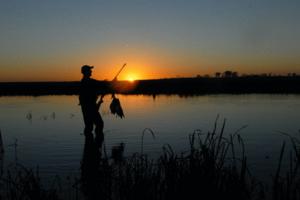
Dennis Anderson: The battle that never ends -- for ducks and for people's attention
MINNEAPOLIS — In the 1850s, W.G. Gresham settled one of the earliest claims on Swan Lake, in southern Minnesota, a stone’s throw from the small burg of Nicollet.
Gresham, who later became a judge in St. Peter, Minn., had learned about waterfowl from Ishtakhaba, or Chief Sleepy Eyes, among other Native Americans. He shot brant and swans on ...Read more
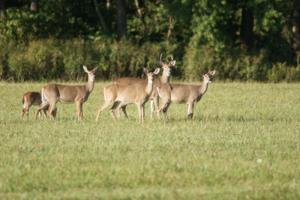
A St. Louis suburb has a deer problem. Are bowhunters the answer?
WILDWOOD, Mo. — St. Louis County's largest suburb, known for leafy subdivisions and wooded hills, has a deer problem.
There are far too many, by official counts. And that carries risks: car crashes, property damage and the spread of ticks that carry disease. The city is in the middle of a five-year plan to trim the population by paying ...Read more
Best times for anglers
(Table for Feb. 8-Feb. 122)
This table lists top fishing times and days for the coming weeks. For best results, begin fishing one hour before and continue one hour after the times given. Times apply to all time zones.
———
Sunday………........4:50 a.m.......…...…….……............................................5:15 p.m.
...Read more

A clash of duck hunters, bird-watchers over recreation at this Florida lake
ORLANDO, Fla. — What lures bird-watchers to Lake Apopka is the same thing that brings hunters there.
But one group shoots pictures, while the other shoots ducks.
Both pastimes are legal recreational activities around the state’s fourth-largest lake, a 30,000-acre body of water known worldwide for its crazy abundance of life, offering a ...Read more
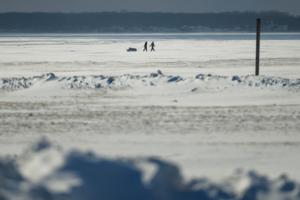
Southeast Michigan anglers profit as long ice fishing season predicted
HARRISON TOWNSHIP, Mich. — Local anglers and bait store owners are forecasting a long ice fishing season ahead with some saying it's the best one they've seen in years, even as the frigid weather has made it too cold for some to go out.
Despite an "up and down" start to this year's ice fishing season for some, specifically for those who fish ...Read more
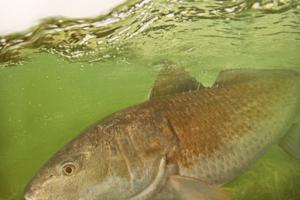
SC's most popular saltwater sport fish 'being loved to death.' New limits coming?
HILTON HEAD ISLAND, S.C. — Redfish cruise the shallow waters of Lowcountry marshes feeding on crabs and other marine life, their tails cutting the surface like a shark’s fin. Anglers reel in some 2 million annually. The excitement of “sight fishing” makes them South Carolina’s most popular saltwater sport fish.
But Matt Perkinson, a ...Read more
Best times for anglers
(Table for Feb. 1-Feb. 15)
This table lists top fishing times and days for the coming weeks. For best results, begin fishing one hour before and continue one hour after the times given. Times apply to all time zones.
———
Sunday……...........Midnight...............……………........................................12:10 p.m.
...Read more

Dennis Anderson: Doomed to a cold, watery death, three hunters were awash in the Mississippi River until being rescued
MINNEAPOLIS — On the day before Thanksgiving, Cole Wagaman awoke uncertain whether he would hunt ducks. He lives in Kasson, in southern Minnesota, and the wind was whipping snow out of the northwest at 30 miles an hour, with a temperature in the mid-20s.
If he did hunt, he wouldn’t take along his golden retriever, Nellie, he knew that.
Too...Read more
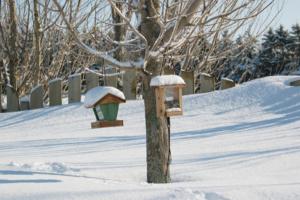
Are your feeders full? Birds need birdfeeders more than ever in heavy snow.
PITTSBURGH — More than a foot of snow has blanketed many areas where local birds look for food.
"So if you have been feeding birds this winter, don't stop when conditions are at their worst," says Kenn Kaufman, a national bird author and artist who visits Pittsburgh regularly.
In the run-up to the Pittsburgh region's biggest snowfall in 16 ...Read more
Best times for anglers
(Table for Jan. 25-Feb. 8)
This table lists top fishing times and days for the coming weeks. For best results, begin fishing one hour before and continue one hour after the times given. Times apply to all time zones.
———
Sunday……….......5:25 p.m.....………………….............................................5:50 a.m.
...Read more
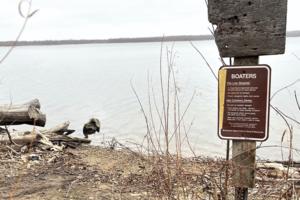
Dennis Anderson: At Bud's Landing, it's carry on as before for Minnesota duck hunters
MINNEAPOLIS — Ron McNamara is no Huck Finn. But McNamara, like Huck, knows something about nighttime travel on the Mississippi River.
“If you think it ain’t dismal and lonesome out in a fog that way by yourself in the night, you try it once — you’ll see," Huck said in Mark Twain’s, “The Adventures of Huckleberry Finn.”
McNamara...Read more
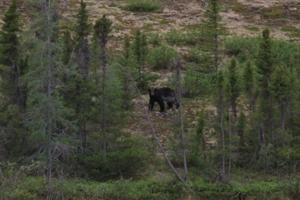
With bear encounters declining in the BWCAW, officials extend food storage order
MINNEAPOLIS — Managers of the Boundary Waters Canoe Area Wilderness say they will extend stricter food storage requirements for visitors, noting the rules have reduced encounters with black bears over the last two years.
The order was set to expire this spring, but now will be enforced for another five years, the U.S. Forest Service announced...Read more
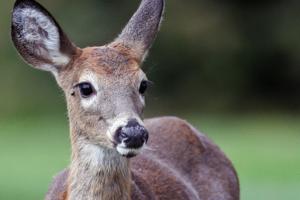
Massachusetts looks to expand deer hunting, including Sunday and crossbow hunting
BOSTON — Will Sundays no longer be peaceful days of rest for deer in the Bay State?
State wildlife officials are looking into expanding deer hunting opportunities, as they gather public input on Sunday hunting, crossbow hunting and minimum setback distances for hunting.
Massachusetts is one of only two states with an outright ban on Sunday ...Read more
Popular Stories
- Birds-eye view of giant redfish school in South Carolina is eye-opener
- Hunter's night rescue illuminates a unique Minnesota emergency team
- Dennis Anderson: How late Vikings coach Bud Grant helped Pheasants Forever take wing
- Ice fishing off to quick start as anglers benefit from early freeze
- Best times for anglers





